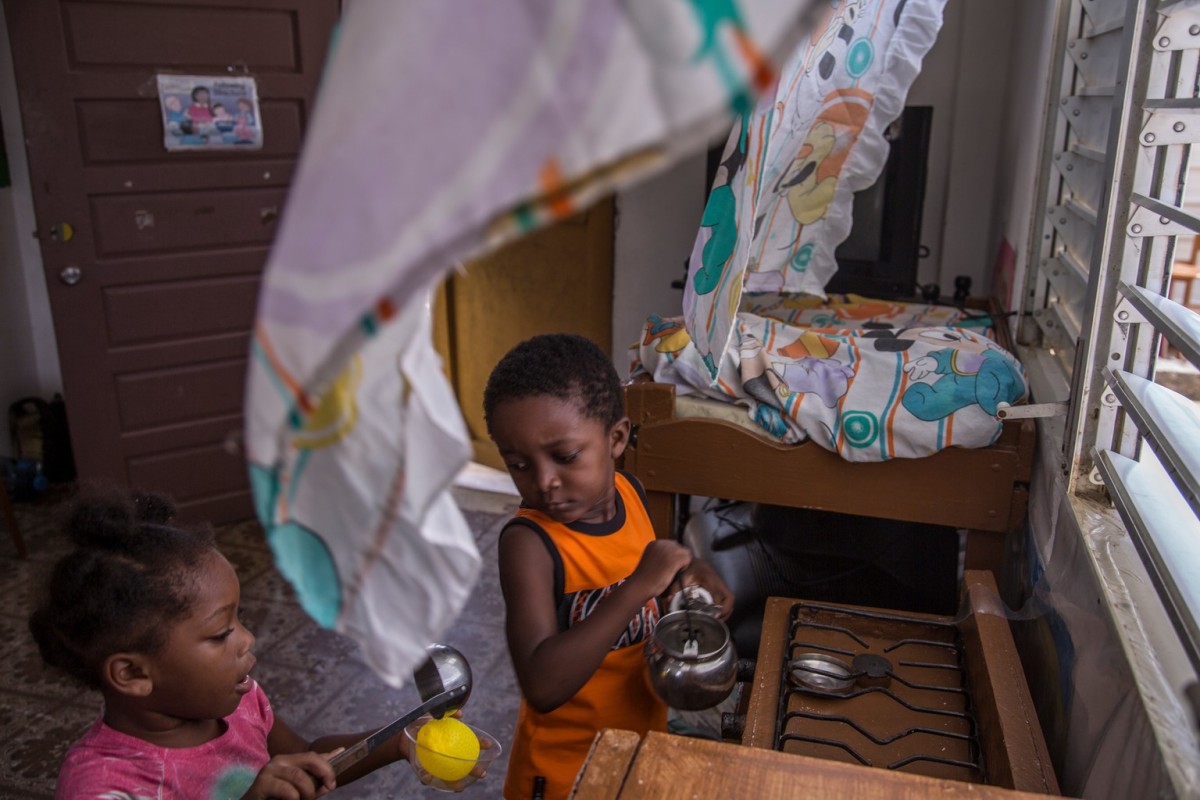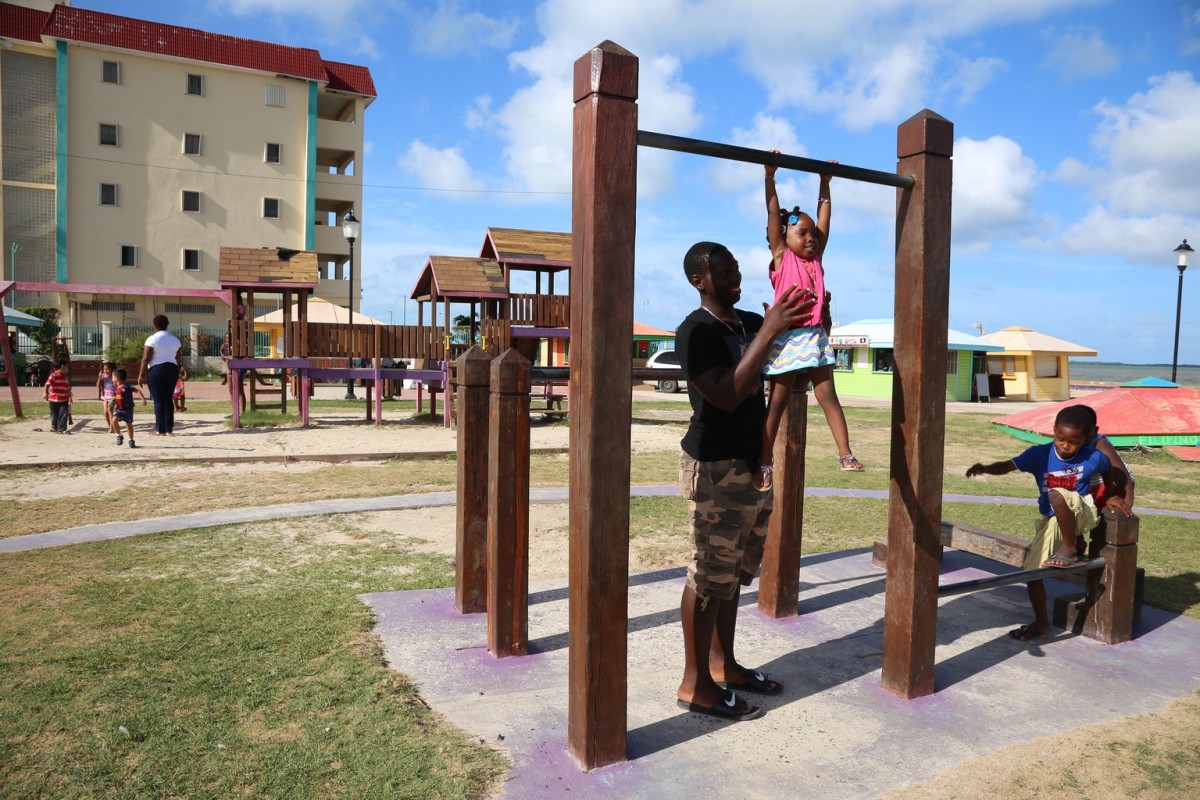Learning through play
2017-09-27
©UNICEF/UN070281/Ose
Play is filled with opportunities for children to learn and is critical for their ain development in early childhood.
The first five years of life have a significant effect on a child’s future. This is because children’s ains grow faster in early childhood than at any other time. When nurtured in safe and stimulating environments — in which playing has a central role — children develop the cognitive, emotional and behavioural skills needed to emace opportunity and bounce back from adversity.

© UNICEF/UN070268/Ose
South Sudanese refugees play in Uganda’s Bidibidi settlement, March 2017. Adversity early in life can lead to problems learning and managing emotions. Nutrition, protection and the stimulation that comes from interactive play, talk and care can help put all children on the path to a healthy future.

© UNICEF/UN05466/Gilbertson VII Photo
Mohammad, 1, and his father Abdul play with a ball at an emergency shelter hosting refugees in Vienna, Austria, December 2015. Young children such as Mohammad who live in an environment with engaged and supportive caregivers have a buffer that helps them cope in times of stress.

© UNICEF/UNI114899/Holt
Julia plays with her daughter Dania, 1, who has a motor delay condition, during a free therapy session at a UNICEF-supported centre in Chisinau, Moldova, June 2011. The centre helps foster quality mother-child interaction and promotes social inclusion of children with disabilities.

© UNICEF/UNI134445/Sokol
M. Sarangoo, 20 months, is captivated as she plays with animal figurines in her family’s home in Mongolia’s northern Khövsgöl province, October 2012. M. Sarangoo’s father is her primary caregiver when her mother is at work. Stable and caring relationships are essential for healthy child development.

© UNICEF/UN035781/LeMoyne
(Right) Orin, 4, and his cousin Skye, 3, pretend to make tea on a stove at his former preschool, in Dangriga, southeast Belize, August 2016. Children’s pretend play is consistently linked to development of their executive functions including their ability regulate their thoughts and emotions.

© UNICEF/UN032037/LeMoyne
Abner, 2, and Melisha, a facilitator from the Roving Caregivers Programme, play at his home in San Felipe village, Belize, August 2016. Melisha conducts visits children like Abner who have no access to early childhood education to engage in age-appropriate stimulating activities through play.

© UNICEF/UN032060/LeMoyne
Conzuelo pushes her great-granddaughter Allizon, 4, on a home-made swing in Cayo District, Belize, August 2016. Because Allizon’s mother works full time, Conzuelo is Allizon’s primary caregiver and spends many hours interacting with her every day.

© UNICEF/UN034621/LeMoyne
Glenda holds up a book for her daughter, Tyra, 2, in the learning space she created at her home near Punta Gorda, Belize, August 2016. Families such as Glenda’s, who live in hard-to-reach locations, are often unable to access pre-school education, holding back children’s cognitive development.

© UNICEF/UN033876/LeMoyne
(Centre) Alishia, 3, plays with her other Andrew, 17, and cousin KJ (right) in a park in Belize City, Belize, August 2016.
“When kids miss out, they feel neglected and they grow up angry, like they’re not wanted,” says Alishia’s aunt Tracy, who cares for her when her mother is at work.









